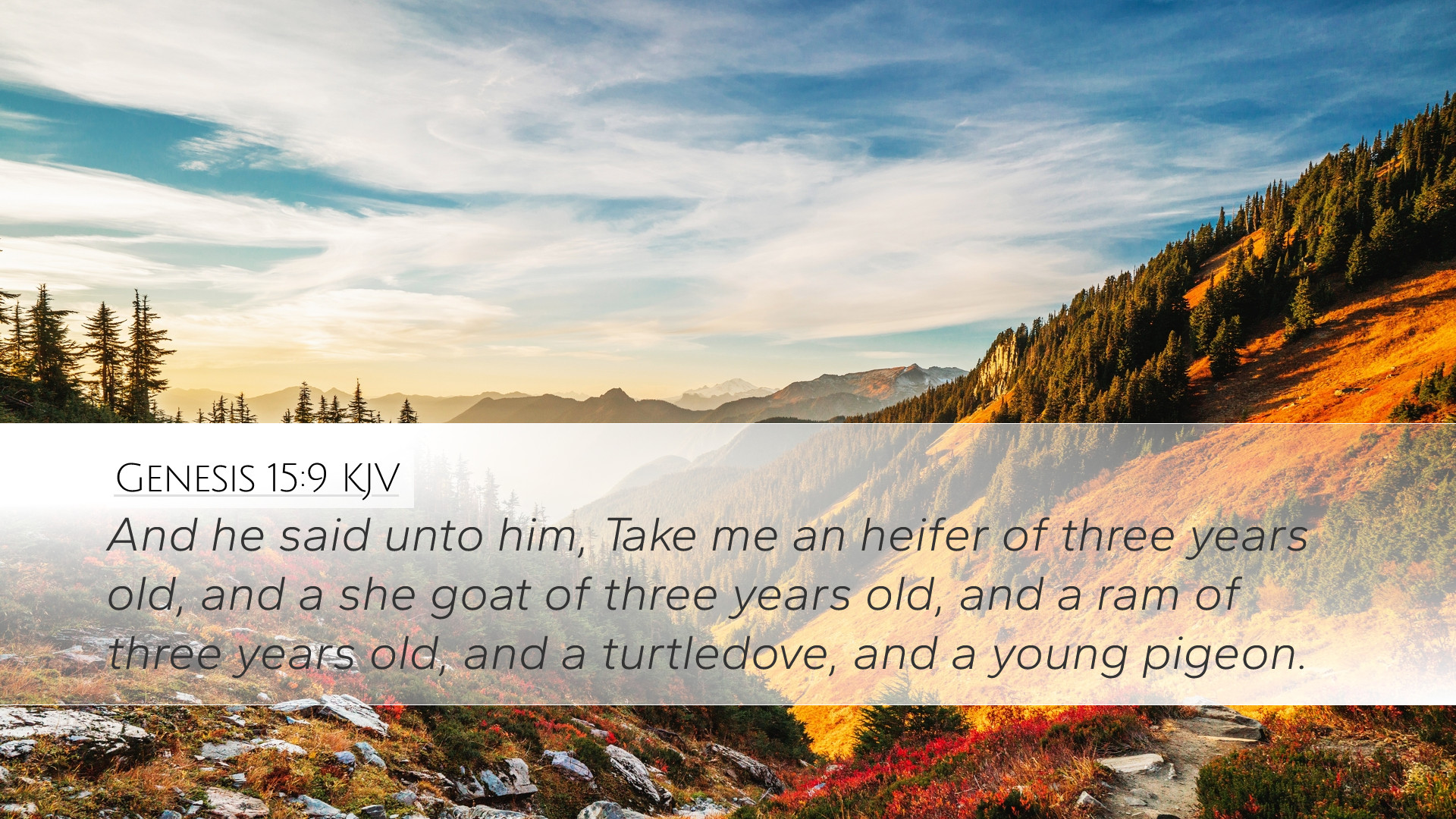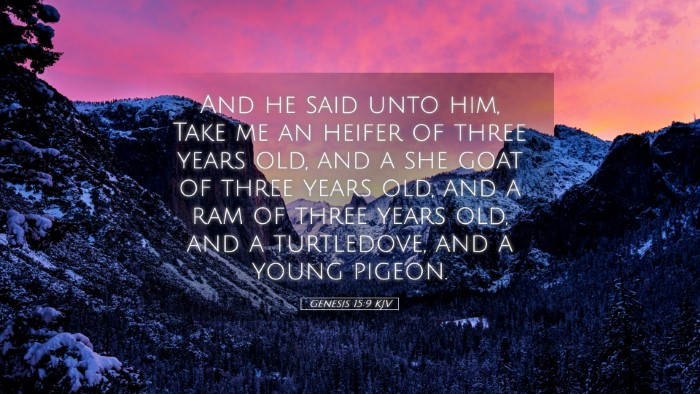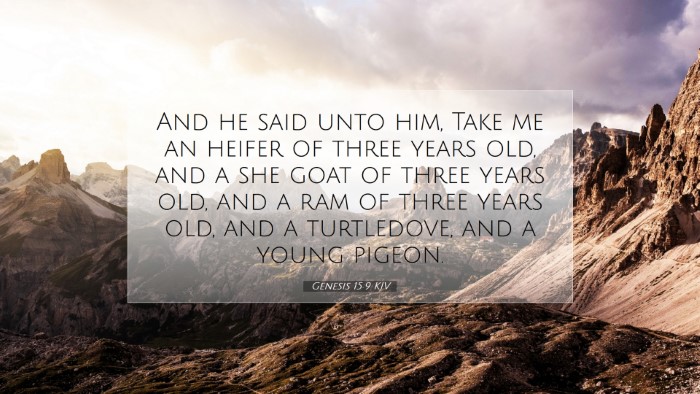Commentary on Genesis 15:9
Bible Verse: "And He said to him, 'Bring Me a three-year-old heifer, a three-year-old female goat, a three-year-old ram, a turtle dove, and a young pigeon.'" - Genesis 15:9 (NKJV)
Introduction
Genesis 15:9 is part of a pivotal moment in the narrative of Abram (later called Abraham) where God reaffirms His covenant with him. The instruction regarding the animals to be brought signifies not merely a ritual but a deeper theological implication regarding God's promises and the nature of covenant.
The Importance of Sacrifice
The request for specific animals symbolizes the essential role of sacrifice in the covenant relationship between God and Abram. As Matthew Henry notes, God requests these animals to demonstrate the seriousness of the covenant. Sacrifices in the Old Testament traditionally serve as a means to atone for sin and to provide a visible sign of commitment and devotion.
- The Heifer, Goat, and Ram: These choices are significant; they are mature animals, indicating the weight of the covenant. Their age symbolizes completeness and perfection, which reflects the commitment inherent in God's promises to Abram.
- The Birds: The inclusion of the turtle dove and the young pigeon points to God's mercy and the accessibility of offering sacrifices, even for those who might not possess larger livestock.
Covenantal Context
The covenant God establishes with Abram in this chapter sets the stage for the unfolding history of redemption. Albert Barnes highlights how this covenant is foundational, revealing not only God's intentions for Abram but also the broader implications for Israel and the nations that follow.
In ancient Near Eastern culture, cutting a covenant often involved the dismemberment of animals. This act communicated the gravity of the promises being made, suggesting that failure to uphold the covenant would result in dire consequences, as highlighted in Adam Clarke's commentary.
Theological Implications
The stipulations of Genesis 15:9 reveal the seriousness of God’s promises and the relationship between the divine and humanity. To theologians, this passage illustrates the lengths to which God will go to confirm His commitments. It invites deeper contemplation on the nature of divine promises and our responses to God.
- Foreshadowing Christ: Many theologians suggest that this act of sacrifice foreshadows the ultimate sacrifice of Christ. Just as these animals were cut to confirm a covenant, Christ’s sacrifice becomes the fulfillment of God's redemptive plan.
- Covenant and Community: The communal aspect of covenant, often seen in the shared meals following sacrifices, is also paramount. This reflects God’s desire for relationship and community with His people.
Practical Applications for Today
For contemporary believers, the passage serves as a reminder of the importance of commitment to God. Just as Abram was called to sacrifice and participate in God’s plans, so are modern Christians invited into a covenant relationship characterized by trust, obedience, and sacrifice.
- Commitment: Reflecting on our commitments, both to God and to others, can enhance our spiritual growth.
- Understanding Sacrifice: Engaging with the idea of sacrifice in our lives—whether that be time, resources, or energy—contacts the heart of our relationship with God.
Conclusion
Genesis 15:9 is layered with meaning that serves as a crucial point in understanding God's covenant with humanity. By examining the symbols within the passage and reflecting on its implications, pastors, students, and scholars can glean insights into the nature of divine promises, the seriousness of covenants, and God's unwavering faithfulness to His people.


